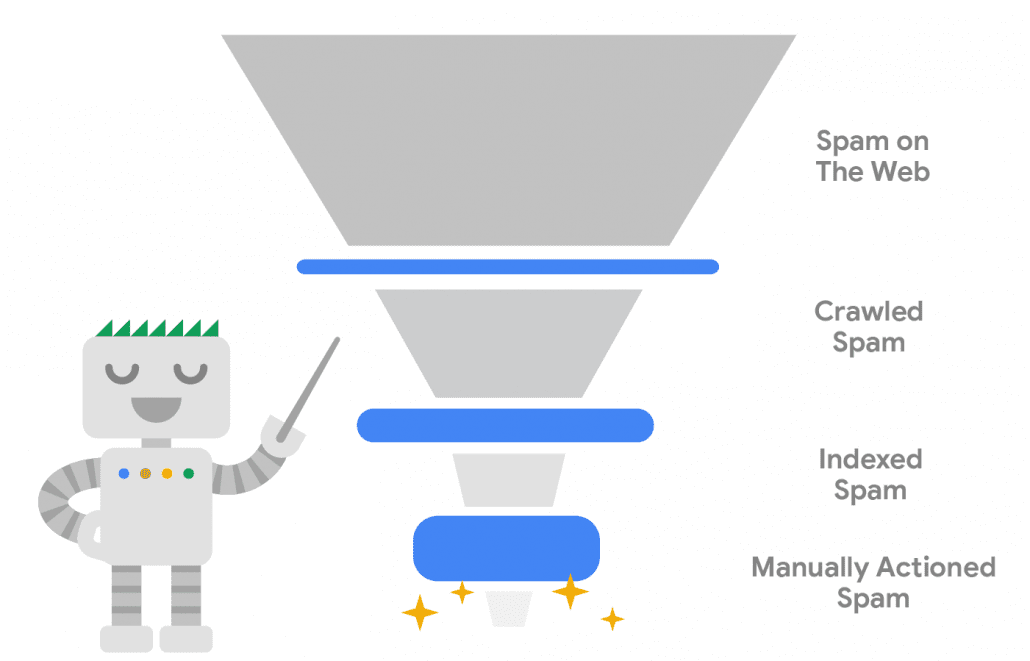Google Removes 40 BILLION Spam Pages Every Day
It can be easy to take for granted how little spam shows up in the dozens of Google searches we make every day.
While we are almost always able to find what we need through the search engine without an abundance of malicious, copied, or just plain spammy websites, the search engine says it has been ramping up spam detection behind the scenes to fight the seemingly endless hordes of illicit or otherwise problematic sites from filling up its search results.
In fact, Google’s webspam report for 2020 says the search engine detected more than 40 billion pages of spam every day last year. This reflects a 60% increase from the year before.
How Google Search is Fighting Spam
It is possible there was a distinct increase in spammy sites last year, potentially due to disruptions and other changes brought about by the Covid pandemic. According to the search engine though, the bulk of this increase is the result of increased spam prevention efforts with the help of AI.
Artificial intelligence and machine learning have helped the company keep with new spam methods and are credited with allowing the search engine to reduce auto-generated or scraped content “by more than 80% compared to a couple of years ago.”
This AI-based approach also frees up Google’s manual action spam team to focus on more advanced forms of spam, such as hacked sites which were “still rampant in 2020.”
To show you how this approach works and helps filter out the bulk of webspam before it even gets added to Google’s indexes, the company shared a simple graphic:

COVID Spam and Misinformation
As with everyone, Google faced unprecedented situations in the past year as it responded to the COVID-19 pandemic. This included devoting “significant effort in extending protection to the billions of searches” related to the virus.
One part of this effort was instituting a “more about this result” feature which added additional context about sites before clicking through to one of their pages. This intends to help users avoid bad actors that popped up, especially during the early stages of the pandemic.
Additionally, the search engine says it worked to remove misinformation that could be dangerous during the course of the pandemic.
What This Means For You

Assuming you are a reputable professional in your industry, Google’s increased efforts to fight spam should only be a source of comfort. There have been fewer reports of sites being incorrectly targeted by these spam prevention methods in recent years, while the overall level of deceptive, spammy, or harmful sites in the search results has plummeted.
All in all, this means a better experience for both users trying to find information and products, as well as brands fighting to reach new customers online.








Leave a Reply
Want to join the discussion?Feel free to contribute!